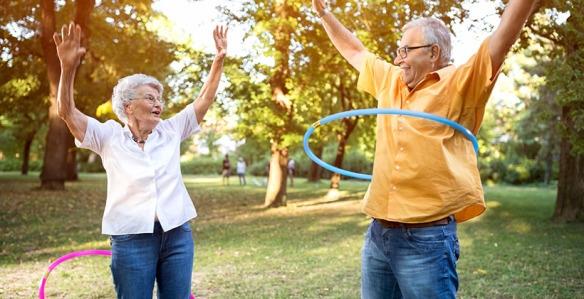How to Combat Negative Stereotypes About Aging?

Ageism has always existed to some degree in American society. With more than 76 million members of the baby boomer generation beginning to reach retirement age. However, the problem of negative stereotypes about aging has come into new focus.
While most people respect the older adults they know, society at large maintains a negative attitude toward aging. Older workers who need to stay in their jobs often face a preference for youthful employees. Even greeting cards portray aging in an unfavorable light.
Where Does Ageism Begin?
Ageism is defined as discrimination or prejudice against older people, and it is a learned behavior from an early age. Whether the culture of disapproval toward aging begins with parents, peers or exposure to media, it can become a pervasive attitude that people take into adulthood.
Because individuals tend to be young when they internalize stereotypes about older people. They typically do not question the unfair portrayals. Those attitudes are reinforced as an individual ages and, eventually, become self-stereotypes.
Manifestations of Ageism
Research has found that negative stereotypes toward ourselves as we age can result in shorter lifespans and reduce our enthusiasm for life. Disapproving attitudes toward older people lead to patronizing behavior such as speaking loudly to individuals with no hearing loss simply because of their perceived age.
In professional settings, employees may ignore an older person, speaking instead to a younger friend or family member. Research has identified ageism as a cause of both under- and over-treatment of older people in medical settings as symptoms of health problems are misconstrued as signs of normal aging. Talking down to older people, including using names like “sweetie,” is another manifestation of ageism and can convey a lack of respect.
The prevalence of stereotypes can inhibit older people from pursuing their interests or favorite activities, resulting in the withholding from society of the skills, talents and insights elders have to offer. In addition, older people who become disconnected from social networks are at an increased risk of isolation.
Changing Perceptions and Attitudes
Perceptions about people often begin with language and are reinforced through continued use of negative or derogatory terms. Communities like The Commons in Lincoln are helping move society away from unfavorable terms like “elderly” and toward neutral terms such as “older adults” that do not involve stereotypes.
Interaction between generations is another method of defeating false ideas about what it means to get older. Activities that bring together older adults with people of other generations help break down stereotypes and promote understanding.
By creating positive expectations about aging, we can help elders increase their confidence and become more willing to participate in a broader variety of activities. When elders share their time, joy and knowledge with others, people of all generations benefit.